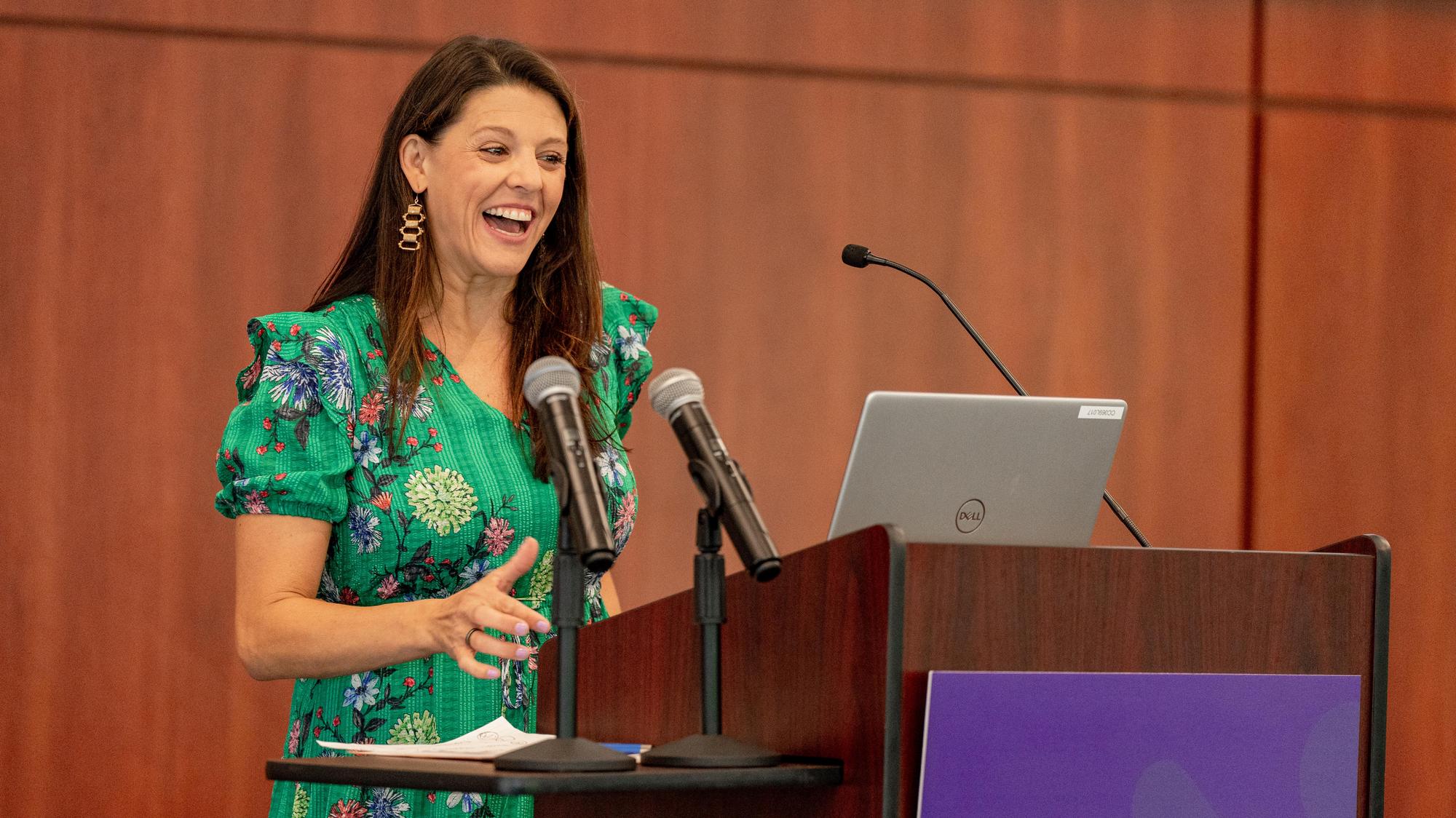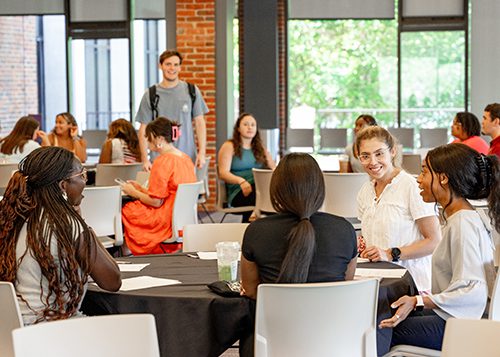Community engaged medicine students learn lessons in resilience

Before joining the the Greenville Free Medical Clinic (GFMC) as a behavioral health counselor, Johanna Ott Gimpel worked at an inpatient psychiatric hospital during the COVID-19 pandemic.
“I was a therapist trying to save lives, and I got thrown into the COVID unit as well,” said Ott Gimpel during a seminar on July 14 about mental health resilience hosted by The Institute for the Advancement of Community Health (IACH). “I was working from 7 a.m. until 7 p.m., no bathroom breaks, no one asking how I’m doing. I knew the hospital was in a crisis, but I didn’t know how bad of a crisis I was in as well.”
Helping health care workers bounce back from burnout, exhaustion, compassion fatigue and other common mental health issues was the goal of the seminar, based on a program developed in New York City to help frontline healthcare workers during the pandemic. GFMC is making the free training sessions available to other organizations throughout the Greenville, South Carolina, area.
Strategies for self-care and coping
More than 50 people attended the workshop in the Trone Student Center, including the 25 Furman graduate students in the Master of Science in Community Engaged Medicine (MSCEM) program and several Furman faculty members.

More than 50 people, including students in Furman’s Master of Science in Community Engaged Medicine program and representatives of several community organizations, attended a resilience training seminar July 14, 2023, in the Trone Student Center.
IACH also welcomed representatives from their partner community organizations, including Prisma Health, Bon Secours St. Francis, Gateway, Project Hope and 864Pride.
Defining resilience as “a combination of support and care from outside and within, plus positive coping skills,” Ott Gimpel presented several evidence-based strategies for self-care and coping, including stress management techniques, regular sleep, healthy eating and a “buddy system,” in which health care workers regularly check in on each other.
“Being able to be comfortable to ask, ‘Are you OK? How are you doing?’ – That should be the norm,” she said. “But somehow we’ve gotten away from that, because we’re so consumed with everything else.”
Sharing knowledge
She also shared a “feelings wheel,” a tool to help zero in on the awareness of emotions from broad (“sad”) to specific (“grief” or “inferior” or “powerless”).
“Once we get the verbiage, it’s so much easier to identify and explain what we’re feeling,” she said.
Having a representative from GFMC, one of the community partner organizations where MSCEM students conduct field work, fits well with the curriculum, said Rachael Bowers, director of MSCEM and interim executive director of IACH.
“Our partners are so key to engaged learning for the graduate students, consistent with The Furman Advantage,” she said. “We’re elevating the professionals that contribute to education as well as sharing knowledge.”
It’s important for the students to receive training in mental health resilience as they prepare for their futures in the health care field, Bowers said.
“We really want each cohort in the master’s program to be able to be a support system for each other,” she said. “And they need to hear how that can continue into their engaged learning and their professional lives.”
‘Be there for yourself and others’
MSCEM student Tamia Cobb, a medical assistant from Rock Hill, South Carolina, plans to take Ott Gimpel’s advice on avoiding compassion fatigue with her to medical school or a physician assistant program and beyond.
“I know a lot of times in the medical field, people get burned out,” she said. “I can use compassion as a protective factor for myself and help my patients use self-care, too.”
The training “reinforced that your mental health is important as you go through your daily life,” said MSCEM student Mason Moore, a University of Mississippi graduate who plans to attend medical school. “Not just be there for others, but really put some focus on yourself, too.”